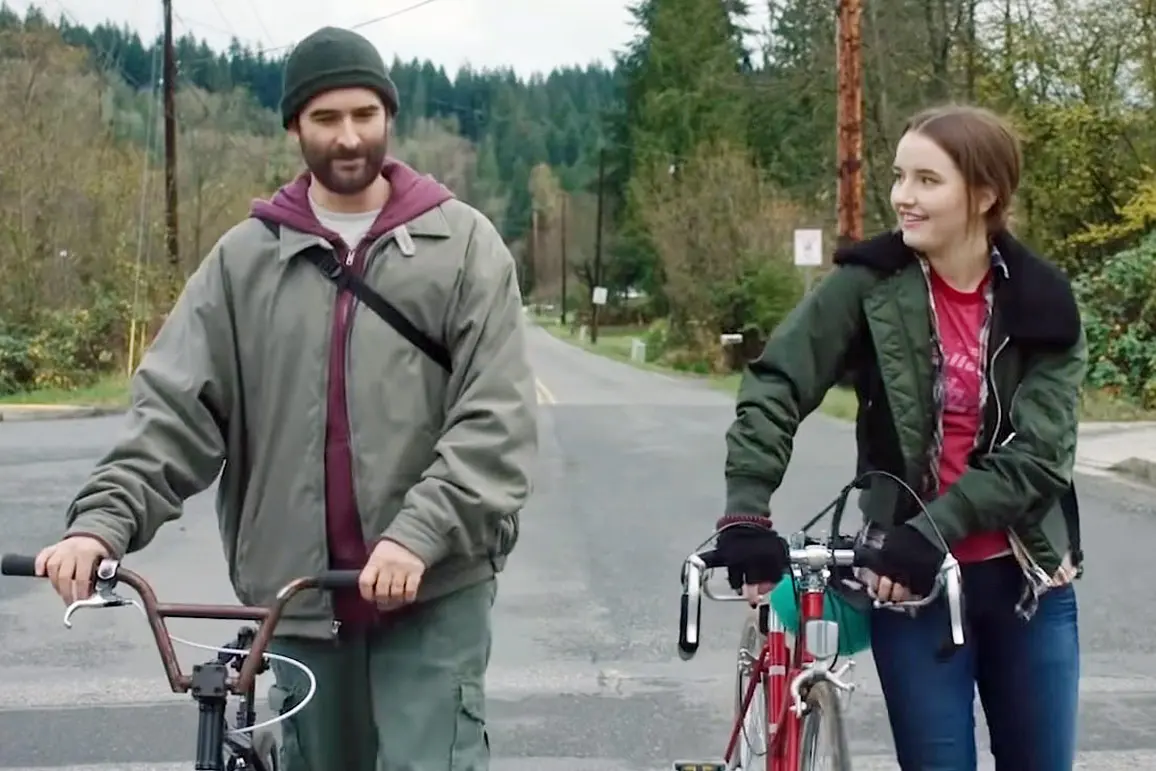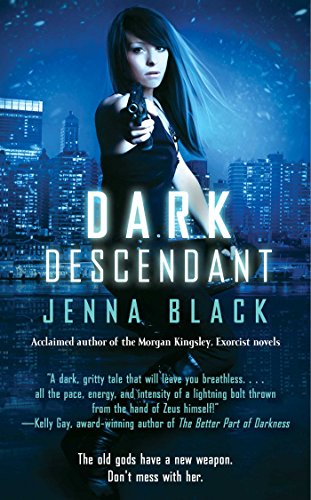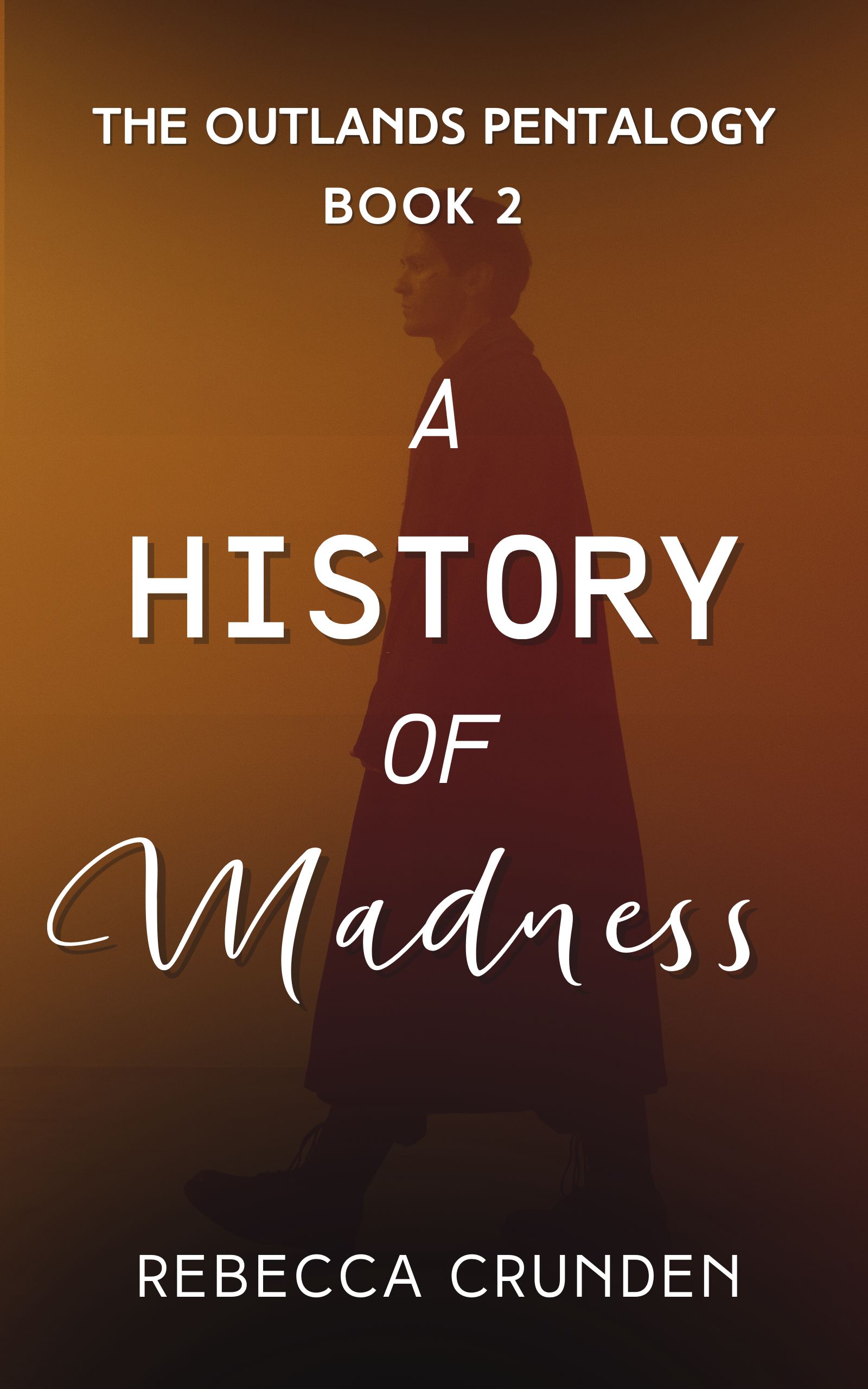Dark Descendant: Urban Fantasy Jack Kirby Could Have Drawn
I picked up Jenna Black's urban fantasy novel Dark Descendant at a Louisiana gas station that still sells paperbacks on a spin rack, reminding me of childhood trips on my 10-speed down the hill in Burleson, Texas, to look for books at the Stop-n-Go.
Dark Descendant is about Nikki Glass, a detective whose case takes her to the compound of a creepy cult outside D.C. on a night where snow and sleet make driving dangerous. This point is demonstrated when she strikes and kills her client, a resident of that compound.
That's bad for business but worse for her life. Turns out he was an immortal with powers and she is a descendant of the only humans who can render them mortal. When one dies the descendant inherits their powers and immortality.
So now she's got the powers of Artemis the Hunter and some immortals think she ran down their buddy on purpose. Rival immortals find out there's a new descendant of Artemis and deeply covet those hunting skills.
That's how the book starts and it's an engaging premise Black doesn't entirely pull off because the characters and dialogue aren't as sharp as the plot. Though it's urban fantasy I read the novel more as a superhero comic. There are two groups of people with distinct superpowers clashing with each other and Nikki's like Kitty Pryde arriving at the Xavier School of Mutants with her suitcase, bell bottoms and a wide-eyed expression. Except Wolverine wants her dead.
Nikki's too passive, which is excusable at first because she's thrown into such weird circumstances but not for an entire novel. At some point events need to start happening because your protagonist made them happen. There are some great fight scenes where she discovers the extent of her powers on the fly. One character with the powers of Eros makes unforgettable and disturbing threats about how he'll use them.
I liked the novel enough to be curious about the sequel but won't be jumping right into it. I need to finish reading entrants for the finals of the SPSFC.
Defending the W3C's Publication of the RSS Specification

The W3C publishes a copy of the RSS 2.0 specification on its website as part of the documentation for its Feed Validation Service. Dave Winer has started making complaints that the W3C is violating his copyright.
As the chairman of the RSS Advisory Board, the group whose document the W3C is republishing, I can state that there is no copyright violation by the W3C. It is redistributing our copy of the RSS 2.0 Specification under the terms of the Creative Commons Attribution/Share Alike license and using our preferred authorship credit: RSS Advisory Board with a link to https://www.rssboard.org.
The RSS Advisory Board has published the RSS 2.0 Specification for 20 years, releasing 10 revisions over that time. The changes have mostly been minor, aside from one clarification that namespaces can be used to extend RSS by adding elements and attributes, not just elements.
The board began publishing the spec under a Creative Commons Attribution/Share Alike license when Dave Winer was still a member. It is redistributable under the terms of that license forever.
Winer wrote this on his blog in 2003:
On July 15, UserLand Software transferred ownership of its RSS 2.0 specification to the Berkman Center for Internet & Society at Harvard Law School.
Berkman then placed a Creative Commons license on the spec, allowing it to be customized, excerpted and republished. ...
The spec can circulate freely thanks to the Creative Commons.
He was correct then and is incorrect now. The spec is in the commons and can circulate freely.
Related Links:
- Discussion of this issue on Hacker News
- More discussion on Mastodon
- Even more on GitHub
Outside In: Jay Duplass Walks the Straight and Narrow

I was trapped in an endless scroll through Netflix movies the other night until I saw one of the Duplass brothers.
Jay Duplass stars in the 2017 movie Outside In with Edie Falco and Kaitlyn Dever. He plays a man released after 20 years in prison because of the efforts of his former English teacher Falco, who championed his cause. Dever portrays Falco's 17-year-old daughter, who is alienated after being raised by a mother who champions causes.
I'll watch any movie or TV series involving the Duplass brothers because I like how they embrace the mundane in their work. Even when big events happen in the lives of their characters, they only get small payoffs. It reminds me of a speech I attended in the 1980s where Kurt Vonnegut drew a graph with lines that curved up and down to represent the rise and fall of fictional lives. Then he drew a straight line and called it real life, cautioning us not to drive ourselves mad expecting our lives to be a good story.
Duplass characters stay close to that straight line.
In Outside In, the protagonist Chris was imprisoned because of a murder. Someone was shot and killed by people Chris knew and he was the only one who stayed behind to render aid. He returns home upon release to the downtrodden Granite Falls, Washington, community where it occurred.
Unable to find anyone who will hire him and hurt by his family's abandonment during his imprisonment, Chris is adrift in the world upon release and feels close to nobody other than his married teacher Carol, who he loves. When his feelings make the relationship difficult for Carol to manage, he is befriended by her daughter Hildy, who tells her mother "he has no one." This is not a triangle and never salacious.
Duplass is effective as the gentle and decent Chris, who is emotionally on a level closer to the 18-year-old who went in than the 38-year-old who came out. Falco gives the strongest performance in the toughest role, showing the audience every step and misstep of Carol deciding what she wants her life to become.
I rooted for all three protagonists and thought the ending was wonderful. And small.
Bias Against Bicyclists and Pedestrians When Cars Hit Them

Dartmouth head football coach Buddy Teevens was seriously injured when a truck struck his bicycle Thursday night on State Road A1A in Crescent Beach near St. Augustine. The news story in the St. Augustine Record demonstrates something I've been noticing in the media lately -- the bias that bicycles and pedestrians are probably to blame when vehicles hit them:
Teevens, 66, was crossing at 6100 State Road A1A at around 8:40 p.m. when he was hit by a 40-year-old female traveling northbound in a pickup truck, FHP said.
Teevens did not have any illuminated lights on his bicycle and wasn't in a crosswalk or designated crossing area, the report stated. It also noted he wasn't wearing a helmet.
I'm well-familiar with the stretch of road where this collision occurred. It's an undivided 45-mph two-lane road alongside beachfront condos and the occasional business. Citing a Florida Highway Patrol report, the story makes an issue out of Teevens not crossing at a crosswalk -- but it doesn't mention there are no marked crosswalks or intersections with stop lights anywhere around that location.
Another more detailed story from Valley News also mentions him not using a crosswalk, but it's a New Hampshire paper whose reporter wouldn't know the area.
I don't know who caused this accident, but Florida is the most dangerous state in the U.S. for bicyclists. Far too little is done here to make it safe for bicyclists and walkers.
Review: Rebecca Crunden's A History of Madness
One of my favorite books as a judge in the first Self-Published Science Fiction Competition (SPSFC) was Rebecca Crunden's A Touch of Death, the first book in a post-apocalyptic series where the non-mutated humans who emerge from underground long after a nuclear conflagration end up in a totalitarian monarchy where freedom and history are outlawed.
I reviewed A Touch of Death for File 770's SPSFC team last May and just read book two, A History of Madness, of my own free will. It's the first free-range reading I've done in a while because I was deep in the weeds reading books for the second SPSFC.
Out of 300 books entered in the first SPSFC, seven made the finals. A Touch of Death finished eighth.
A History of Madness picks up right where the last book left off for Nate and Catherine, two members of the upper class who threw away lives of easy affluence within the King's inner circle because they could endure no more tyranny. Actually, only one of them did that with full intent (Nate) and the other was more of an accidental revolutionary (Catherine).
Without spoiling the ending of book one, I'll say that it left Nate and Catherine in serious doubt of living to see book two.
This installment begins with Nate in Redwater Prison again, where every day he isn't executed is a surprise, though one not entirely welcome because of how the king treats imprisoned dissidents. Being within its walls brings back the memory of a childhood trip to the prison, where his teacher was executed by firing squad in front of the students for reading them an unauthorized book.
Nate ends up in a work camp to serve the rest of his sentence building the kingdom's new city and being left alone by the guards. But going along with that would mean permanent separation from Catherine, whose upcoming marriage to a notorious sadist in the king's family is all over the broadcasts.
Nate's already plotting escape the first night his head hits the pillow.
I read this book fearing throughout that bad things were about to happen to the protagonists. Crunden's excellent at evoking dread.
The first book made readers care about the protagonists. The second makes them care about the world. As I progressed I found myself thinking as much about the setting of Cutta and its inhabitants as I did the escape bid of Nate and Catherine. This gives confidence there's a rich five-book story to be told here.
Have I mentioned yet that we meet the mutants? You can't tell a story about non-mutated humans without mutated ones, but in book one they were often mentioned and never seen. When the mutants are finally ready for their closeup, Mr. DeMille, it pivots the events of this pentalogy in an intriguing new direction.
Crunden tirelessly promotes self-published authors on Twitter with her Indie Book Spotlight account, which has amassed 30,000 followers. She deserves some promoting of her own.
A History of Madness is an engaging dystopian science fiction novel by a talented writer with as comfortable an ease of phrase and ear for dialogue as books I've nominated in the past for Hugos.
However, I'm still not ready to ship Cathernate as a couple.
The Spam Problem on This Blog Just Disappeared
The Workbench weblog is running my own software, implemented with PHP and MySQL in higgledy-piggledy fashion over the years. I just added functionality that can hide all new comments until they are approved by a moderator.
During the blogging boom there were boisterous discussions on many of the posts here, so I didn't want to gum up the works. Every comment went up immediately.
These days, 99 out of 100 comments are spam. I've been manually getting rid of them after they are posted, which often means they spend one or two days on a post before the spam is deleted and submitting IP address banned.
Now, nobody gets a comment on Workbench until I've seen it first.
I took the time to do this because I want to blog more. A big motivator is that Elon Musk is burning Twitter to the ground, but the bird site was already a place that was taking more out of me than I was getting back. There are a couple hundred people I like to communicate with on Twitter and thousands more I'd like very much to never hear from at all, including exceptionally terrible people like TERFs, COVID deniers and Kari Lake.
Twitter is like a wedding reception where every table has some of your friends but you're required to share it with somebody's racist uncle.
How to Declare Your Conflicts of Interest
The book blogger Edward Champion has written one of the greatest conflict of interest declarations of all time:
I have no connection with any of these authors. The only conflict of interest here involves one of the books being edited by a loathsome liar and rumormongering backstabber whom I strongly detest. He has pushed many kind heads beneath the undertow for careerist purposes and, despite leading a smear campaign accusing bloggers of unethical journalism many years ago, he has evinced pure unethical venality in regularly buying books for the publisher he represents that are agented by his partner, thus securing a crooked two-income stream. Still, quality work is quality work and this scumbag's unfortunate association with a book I happened to love did not deter me in any way from ranking the book very high. (I have elided this man's name, as well as that of another hateful and treacherous individual cited below, to make it slightly more difficult for him to name search himself. But if you really need to know who they are, Google is free.)
The entire review is a delight. Champion read the National Book Awards fiction longlist in full after the books were announced on Sept. 16, 2022. Finishing nine books took him two weeks.



